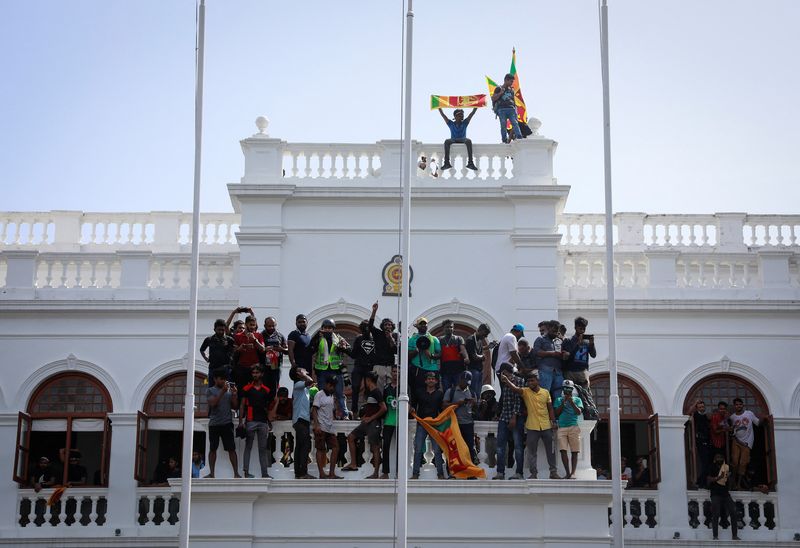COLOMBO (Reuters) - A deepening economic crisis in Sri Lanka sparked mass protests that forced President Gotabaya Rajapaksa to flee the country, leaving his successor, Ranil Wickremesinghe, to declare a state of emergency while seeking a bailout from the International Monetary Fund.
On Friday, a day after Wickremesinghe was sworn in, security forces launched a pre-dawn raid on a protest camp occupying government grounds in Colombo and cleared out a section of it.
Here are some of the key developments in the crisis:
March 31, 2022: Demonstrators march to President Gotabaya Rajapaksa's private residence to protest over worsening economic conditions.
April 3: Rajapaksa dissolves the cabinet, which includes his younger brother Basil Rajapaksa as finance minister, but elder brother Mahinda Rajapaksa continues as prime minister.
April 9: Protests escalate, with sit-in demonstrations outside Rajapaksa's office calling for the removal of the president to pave the way for political reforms.
May 9: Following widespread clashes between pro- and anti-government protesters, Prime Minister Mahinda Rajapaksa resigns. Countrywide violence leaves nine dead and about 300 injured.
July 9: President Gotabaya Rajapaksa informs the parliamentary speaker that he plans to step down on July 13, after protesters storm into the official presidential residence. Prime Minister Ranil Wickremesinghe says he is willing to resign too.
July 13: President Gotabaya Rajapaksa flees Sri Lanka, initially going to Maldives, before moving on to Singapore.
July 14: Rajapaksa submits a letter of resignation hours after arriving in Singapore, becoming the first Sri Lankan president to quit while in office.
July 15: Parliament accepts Rajapaksa's resignation. Ranil Wickremesinghe, a six-time prime minister, is sworn in as acting president.
July 18: Wickremesinghe declares state of emergency.
July 20: Wickremesinghe wins vote in parliament to become new president. A large section of the public remains unhappy with parliament's choice, because of Wickremesinghe's past association with Rajapaksa.
July 22: Sri Lankan security forces raid a protest camp occupying government grounds in the main city of Colombo and cleared out a section of it, arresting nine people. Later the same day, Dinesh Gunawardena is sworn in as prime minister, although he too has been perceived as an ally of Rajapaksa.
(Reporting Devjyot Ghoshal and Uditha Jayasinghe, compiled by Shilpa Jamkhandikar; Editing by Simon Cameron-Moore)
